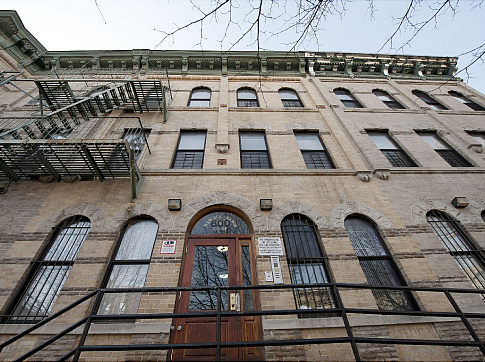In a city where affordable housing is as scarce as a legal parking space, some City Council members have found ways to cut certain corners.
Some got questionable tax breaks.
One got city-backed affordable housing, though he and his wife were at least $40,000 over the income limit.
Another got a subsidized co-op, then bought a $90,000 brownstone.
Yet another ignored city inspectors investigating if he had an illegally converted apartment.
All these practices surfaced in a three-month Daily News investigation, based on a review of thousands of pages of records regarding judgments, liens, tax history, property ownership, building-code violations and financial disclosure.
Government reform advocates were floored by The News’ findings.
“I’m just stunned,” said Citizens Union executive director Dick Dadey. “It’s troubling that so many Council members who are sworn to uphold the law are in fact in trouble with the law or have skirted the law.”
TAX BREAKS
Councilmen Jumaane Williams (D-Brooklyn), Fernando Cabrera (D-Bronx), Peter Koo (R-Queens) and Matthieu Eugene (D-Brooklyn) all got tax breaks by claiming to live somewhere outside their council districts.
Council members must live in their district, but these four claim homes they own elsewhere as “primary residences.” That entitles them to School Tax Relief (STAR), which trims hundreds of dollars off their property taxes.
Williams first said he was unaware he was getting his $281 annual break, saying he’d moved out of the building he owns outside his district and just uses it as rental property.
He later said he did get the break, and that he’d “correct the situation.”
Cabrera owns a condo in his Bronx district where he’s registered to vote, but claims his “primary residence” is a home he owns in Westchester County. That has saved him $1,513 this school year, officials say. On Friday, he said, “To be honest with you it was a total oversight. To me, my integrity means a whole lot.” He said he would arrange to pay it back today.
Koo is registered to vote at an apartment in his Queens district, but owns a Long Island home he calls his “primary residence.” That saved him $874 last year.
He was challenged about this arrangement when he first ran in 2008 and testified that his wife “takes care of the tax matters.” He did not return calls last week seeking comment.
Eugene says he rents an apartment in his Brooklyn district, but records show he owns a home he calls his “primary residence” elsewhere that nets him a $281 tax break. He told The News his district apartment is his primary residence.
AFFORDABLE HOUSING
In April 2008, Councilman Erik Dilan (D-Brooklyn) got a city-backed affordable apartment available to families making under $114,000. At the time he and his wife made about $160,000 between his Council paycheck and her job at a nonprofit.
The building was constructed by an affiliate of a company owned by one of Dilan’s campaign donors, Sergio Benitez. He and a relative have donated $3,000 to Dilan since 2001.
After News inquiries, the city Department of Housing Preservation & Development contacted the developer, who was unable to provide them with documentation verifying Dilan’s income when he applied for the housing.
Dilan, who the city says pays $900 a month in rent, said only: “I have a market-rate apartment. I pay market-rate rent.”
Darlene Mealy ( D-Brooklyn) has a similar deal.
In 1993, then MTA-employee Mealy and her sister, Louise, moved into a three-bedroom, low income co-op on Hancock St., available only to families making no more than $15,200 a year. Maintenance was $380 a month. Within two years, Mealy and her sister were able to buy a $90,000 two-family brownstone on nearby Herkimer St. with a $14,000 down payment. Mealy is registered to vote at Hancock St. The councilwoman won’t say precisely where she lives or explain how she was able to buy a brownstone shortly after claiming such a low income.
“It’s all public information,” she said.
ILLEGAL CONVERSION
Besides his questionable tax break, Williams twice ignored city inspectors investigating allegations of an illegally converted apartment.
On May 30, 2008, someone told the buildings department there was an illegal conversion in the basement of Williams’ E. 98th St. two-family.
On July 8, 2008, Williams filed papers declaring his intent to run for City Council.
Three days later, a building inspector looking into the complaint knocked on his door. Unable to gain access, the inspector left a notice . Getting no response, the inspector returned a month later and left another notice. The agency says there’s no record that Williams responded. He said he remembered the first notice, but not the second.
Last week, The News found Williams’ building had two mailboxes and two meters, but there was a third side door leading to the basement with its own doorbell.
Williams declined to say if there was an illegal conversion at the time of the complaint: “I’m not commenting on any of that, and I know that there are no tenants there now.”
BY Erin Einhorn, Robert Gearty, Benjamin Lesser, Tina Moore Barbara Ross and Greg B. Smith
DAILY NEWS



